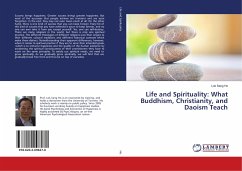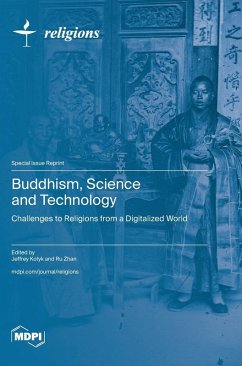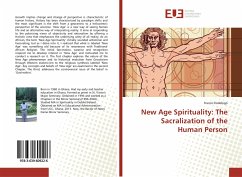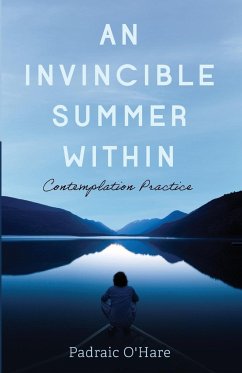
Life and Spirituality: What Buddhism, Christianity, and Daoism Teach
Versandkostenfrei!
Versandfertig in 6-10 Tagen
28,99 €
inkl. MwSt.

PAYBACK Punkte
14 °P sammeln!
Success brings happiness. Greater success brings greater happiness. But most of the successes that people achieve are transient and are soon forgotten. In the end, they may not even mean much at all. On the other hand, there is one kind of success that you can keep forever. Every bit of this kind of success that you have achieved is yours to keep forever, and no one can ever take it from you except yourself. Yes, one can self-destroy. There are many religions in the world, but there is only one spiritual practice. The different theologies of different religions owe their origins to their diffe...
Success brings happiness. Greater success brings greater happiness. But most of the successes that people achieve are transient and are soon forgotten. In the end, they may not even mean much at all. On the other hand, there is one kind of success that you can keep forever. Every bit of this kind of success that you have achieved is yours to keep forever, and no one can ever take it from you except yourself. Yes, one can self-destroy. There are many religions in the world, but there is only one spiritual practice. The different theologies of different religions owe their origins to their different cultural traditions and different historical contexts which make them distinct. Notwithstanding their apparent differences, however, when it comes to spiritual practice if they are to serve their intended goals--which is to enhance happiness and the quality of the human existence by awakening the spiritual consciousness of their practitioners--they have to work on the same principles. To satisfy our spiritual needs, we need to grow spiritually. As we gradually grow spiritually, we will find that we gradually break free from and thus be on top of ourselves.












